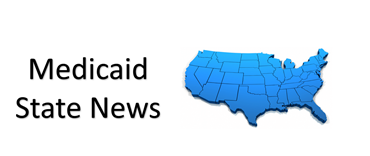MM Curator summary
WA state senators are targeting multiple fixes to the state Medicaid program, with a focus on maternity care, Alzheimers patients, nursing homes and increasing the physician participation rate.
The article below has been highlighted and summarized by our research team. It is provided here for member convenience as part of our Curator service.
The economic devastation accompanying the coronavirus pandemic drove Washingtonians onto Medicaid in record numbers, even as the state held back money meant to protect the lives of mothers and elderly people reliant on the publicly funded insurance.
Now, though, state legislators are looking to bolster key aspects of the state Medicaid system that has seen enrollment jump 11% during the pandemic and now insures 2 million Washingtonians. That’s more than one in five Washington residents, including nearly half the state’s children.
And then there’s COVID-19.
“COVID has really shown a light on the disparities in our health outcomes,” Sen. Emily Randall, a Bremerton Democrat serving as majority whip, told InvestigateWest. “Folks are not getting the same access to care.”
Lawmakers are proposing funding increases to:
- Close a hole in coverage that limits thousands of new mothers to only three months of postpartum care, a shortcoming that can prove fatal, according to a recent report on maternal deaths. One in 9,000 births in Washington ends with the death of the mother.
- Provide better care for older people suffering from Alzheimer’s disease and similar illnesses by raising pay rates to, it’s hoped, open up more space in assisted living apartments for people dementia insured through Medicaid.
- Slow the loss of nursing homes after dozens of homes that served people on Medicaid closed because of low state reimbursement rates.
- Entice doctors and nurses to keep seeing Medicaid patients, so the state’s poorest residents can receive basic medical care without waiting for months or driving for hours.
The pandemic’s disparate impact on people of color and those living near the poverty line exposed longstanding inequities in America’s public health systems, said Sen. Emily Randall, a Bremerton Democrat who has introduced several pieces of legislation that would expand or enhance Washington’s Medicaid system.
Legislators’ current moves to shore up the public health system come after Gov. Jay Inslee, as he faced an imploding state budget in the pandemic’s early days, vetoed millions of dollars in spending passed by the Legislature last spring. By June, Medicaid-paid dental insurance, hospice care and abortion services were all on the chopping block, as was medical care for noncitizen children.
A mild rebound in the state economy and a resulting improvement in tax revenues appears to have secured those programs for the moment. In part because of Democratic gains in Congress that state lawmakers hope will translate to increased federal funding for public insurance programs, they are looking at targeted improvements to Medicaid with state funds.
Marketed as Apple Health in Washington state, Medicaid is a publicly funded insurance program that uses federal and state money to provide free health coverage to the elderly, people with disabilities and lower-income residents, nearly 80% of whom are employed, as well as children. The $9.7 billion program currently draws $2.7 billion a year from state coffers, with the federal government picking up the rest.
Since reconvening Jan. 11, the Legislature has held hearings on bills that would increase Medicaid payment rates to primary care doctors — an effort to reduce the number of doctors dropping out of the Medicaid system — and extend postpartum coverage from 60 days to one year. Other legislation would increase payment rates to Washington’s nursing homes, which had been struggling financially even before COVID-19 ravaged the industry.
‘A healthcare cliff’
Washington has seen 25 nursing homes close since 2017, a loss of more than 1,000 beds, according to industry statistics provided by Alyssa Odegaard of LeadingAge, an advocacy organization representing not-for-profit nursing homes and assisted living facilities. That’s a significant decline for an industry serving about 18,600 people.
About 63% of nursing home residents are insured through Medicaid, and the program’s low reimbursement rates are driving nursing home operators out of business, said Odegaard, LeadingAge’s vice president for public policy.
Medicaid reimbursement rates — about $274 a day — don’t come close to covering the costs of care in Washington. That gap between revenues and expenses has created an industry-wide annual shortfall of $117 million in the state. While residents paying out of pocket or with other insurance balance the books at some homes, many operators are on the verge of shutting down.
Washington’s reimbursement rates are lower than those in Oregon and Idaho, states with less expensive operating costs. Though emergency federal funding helped keep nursing homes open during the pandemic, that shortfall is expected to deepen unless the Legislature acts, Odegaard said.
The shortfall results in a lower quality of care. Nurse salaries are the dominant cost at nursing homes, and low pay makes recruitment and retention challenging — especially at a time when a pandemic is attacking those who need care and those who care for them.
“You’re not able to attract enough staff and you’re not attracting the best staff, because you’re competing with hospitals and clinics that are paying more and offering better benefits,” said Robin Dale, president and CEO of the Washington Health Care Association, which represents for-profit nursing homes and assisted living facilities in the state.
“The state, to some degree, gets the nursing home system that it pays for,” Dale continued. “If they’re not paying an adequate rate, you’re not going to have the best nursing home that you can have.”
The money shortage means fewer nurses and nursing aides. That means nursing home residents wait longer for help. Not only that, they more often wind up hospitalized, Dale said. High turnover creates space for mistakes while leaving little room for bonds to build between nursing home staff and patients.
Bills currently before the Legislature would narrow the gap by changing the way inflation adjustments are figured and increasing reimbursement rates. Together, they would inject about $11 million of state and federal money into the system annually, compared to a 2019 total Medicaid expenditure on nursing homes of $703 million.
For older Washingtonians, the shortfall means disconnection. Residents in need of nursing care sometimes have to move into homes far from their spouses, families and friends. Hundreds of residents are also displaced each year as facilities close; about 1,300 residents have had to move due to closures since 2017.
Some nursing homes are turning away Medicaid clients to make ends meet. Particularly in rural Washington, Medicaid-insured residents increasingly have to leave their communities to find a home.
“I would like people to have the option of staying in their community, where they know people,” said Rep. Joe Schmick, a Republican from Colfax in southeastern Washington who is sponsoring legislation to change how inflation-related adjustments are calculated. “I think they do better.”
That shortfall is driving operators to stop accepting residents on Medicaid or requiring them to pay in cash for years before allowing them to use the insurance, which reimburses providers for 58% of their costs.
Inslee also vetoed a $1.4 million rate increase for facilities serving residents with dementia passed during the 2020 legislative session. Advocates hope the increase, which amounts to $10 a day per resident, will survive this session.
Extending postpartum coverage
Half of all babies born in Washington enter the world covered by Medicaid. But that medical coverage is often short-lived for the mother.
Medicaid covers any pregnant person with an income under about $34,000 a year. That’s the limit for a single pregnant person, which increases with family size. Any children born into those families would be covered, but the income limits are far lower for parents — about $23,700 a year for a single parent.
New parents currently have two to three months of postpartum coverage. That essentially ensures they are insured long enough for one post-pregnancy checkup. But more than a quarter of all pregnancy-related deaths occur more than 45 days after birth, and many birth-related ailments, particularly some postpartum mood disorders, don’t manifest themselves immediately.
Mothers and birthing fathers usually have their postpartum checkup about six weeks after giving birth, Randall said, leaving them days or a few weeks to get care before their insurance lapses.
“That’s a healthcare cliff that no one deserves,” said Randall, who is the lead sponsor on a bill that would extend coverage to a year.
Rokea Jones, a doula and outreach worker with Open Arms Perinatal Services, spends most of her time working with those patients insured through Medicaid. As a doula, she helps pregnant people prepare for childbirth, assists them during delivery, and checks up on them afterward.
Depression, anxiety, psychosis and PTSD can all occur after a birth, often to the surprise of the parent and those close to them. Jones said a longer postpartum care window would give families time to respond.
“If we can help a family identify or get the support for a postpartum mood disorder, that can really change someone’s life,” Jones said.
Rokea Jones, a doula and outreach worker with Open Arms Perinatal Services, is pictured in Renton, Wash. on Sunday, Feb. 7, 2021. As a doula, she helps pregnant women prepare for childbirth, assists them during delivery, and checks up on them afterward. (Jason Redmond/Cascade Public Media Archive)
Unlike Oregon, Washington doesn’t include doula services in its Medicaid program. The Washington Legislature nearly created a program last session — a Governor’s Office funding proposal was pulled during pandemic cost cutting — and Jones said she hopes legislation will be introduced again this session.
A booster for her profession of more than a decade, Jones said doulas can guide parents through childbirth while advocating for them when they run into the kinds of cultural and language barriers identified that are key drivers of maternal death, rates of which have more than doubled since the late 1980s.
“What we’re seeing is that there are a lot of preventable deaths, and it’s boiling down to a lack of communication,” she said. “There are some human-to-human things that are breaking down in our medical system.”
‘They just can’t take any more Medicaid patients’
Primary care — routine medical checkups and check-ins for adults and children — is another failing piece of Washington’s publicly funded health system.
Under-reimbursement by the state Medicaid program has prompted many primary care providers to stop accepting patients with public insurance. The problem is particularly acute in rural areas, where residents increasingly must wait or travel for basic medical services.
“If you have to drive an hour to find a provider who can see you, that means you’re going to be less healthy,” said Sen. Randall, who introduced legislation that would raise reimbursement rates for primary care doctors and, in a separate bill, highly trained nurses. Rep. Schmick, the ranking Republican on the House Health Care & Wellness Committee, said his own doctor recently stopped taking Medicaid patients. The practice, Schmick said, had hit its financial limit.
“They just can’t take any more Medicaid patients,” Schmick said. “And I think that’s the reality, sadly, across rural areas.”
Broadly speaking, Medicaid pay rates are too low for many providers, particularly those providing primary care, family medicine and pediatric care, said MaryAnne Lindeblad, the state Medicaid director with the Health Care Authority, which administers federally funded insurance programs in Washington.
Low reimbursement rates are also driving therapists, substance use counselors and other behavioral health workers away from the public insurance system. Schmick noted that that exodus is occurring even as there are strong
indications that the pandemic has left more Washingtonians in need of substance abuse treatment and mental health help.
Lindeblad stopped short of suggesting that more money is the solution. Rates, she said, could be adjusted to better fund areas of health care that deliver long-term benefits to patients, like primary care.
“There’s a lot of money that comes into the system,” Lindeblad said. “I’m not ready to say there’s not enough money, but perhaps we can look at how we can use those dollars more effectively.”
The 2020 legislative session’s aftermath saw a 15% increase in primary care reimbursement rates fall to a cost-cutting veto by Inslee. Randall has put forward the same bill this session, which comes at a cost of $9.9 million in state dollars annually.
Despite the difficulties the past year presented, Randall strikes a hopeful note in part because of her family’s experience with Medicaid.
Randall was 7 when her sister Olivia was born with medical issues that meant she required a wheelchair, feeding pumps and a great deal of care to live her best life. Olivia did so for 20 years.
“I can’t imagine how that would’ve been possible if she didn’t have Medicaid coverage,” the senator said.
“Our values are there,” Randall reflected. “We know that we need to get better care to people who are struggling under so many burdens, and we’re making progress.”
Clipped from: https://www.invw.org/2021/02/12/2-million-washingtonians-rely-on-a-medicaid-system-thats-driving-away-doctors-and-dropping-new-mothers/






